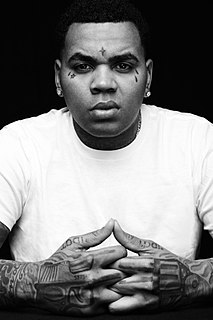A Quote by Chrystia Freeland
Most of the conversation about how geopolitics is changing in the 21st century focuses on the shift from west to east and on how we're moving from the bipolar power equation of the Cold War to a new bipolar relationship, that of the U.S. and China, that determines the mood music for everyone else.
Related Quotes
I learned that I suffered from bipolar II disorder, a less serious variant of bipolar I, which was once known as manic depression. The information was naturally frightening; up to 1 in 5 people with bipolar disorder will commit suicide, and rates may even be higher for those suffering from bipolar II.
For bipolar in adults, I think there's pretty good agreement about what this looks like. For bipolar in children, there is some considerable debate about where are the boundaries. At the mild end, are these just kids who are active? Is this the class clown at the very severe - is this something other than a mood disorder?
I don't want to be caught ... ashamed of anything. And because generally someone who has bipolar doesn't have just bipolar, they have bipolar, and they have a life and a job and a kid and a hat and parents, so its not your overriding identity, it's just something that you have, but not the only thing - even if it's quite a big thing.
The bipolar world of the Cold War is history. The new world order, however, is not the One World dreamed of by Wilsonian idealists. It is a Balkanizing world where race, tribe, culture and creed matter most, and democracy is seen not as an end in itself but as a means to an end - the accretion of power by one's own kind to achieve one's own dreams.
I find Chinese debates about their political system domestically, but also about China's claims in the international system, to be among the most original and surprising and exciting of our time. The starting point is a system that none of us had anticipated, which I call Leninist capitalism, but also obviously because it is the most important emerging power. The question of China's relations with the United States in particular, and the rest of the world in general, is the question of war and peace in the 21st century.
I have a type of bipolar that swings up and down all day long. There are significant mood swings within a day, within a week, within a month. I go through at least four major episodes a year. That's really the definition of bipolar rapid cycle. But I have ultra-rapid, so I have tiny little episodes all day long.
The BRIC countries - Brazil, India, China, Turkey, South Africa, Indonesia even, and Russia - are now new actors. Over the last eight years, China multiplied by seven its economic presence and penetration in the Middle East. And if this happens on economic terms and there is a shift towards the East, the relationship between these countries and Israel is completely different from the United States. And it means that the challenges are going to be different, because China is not supporting Israel the way the U.S. are supporting Israel.


































